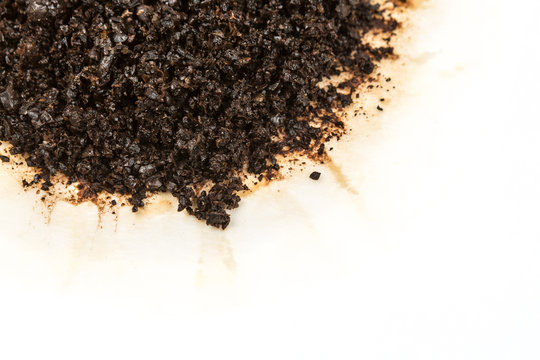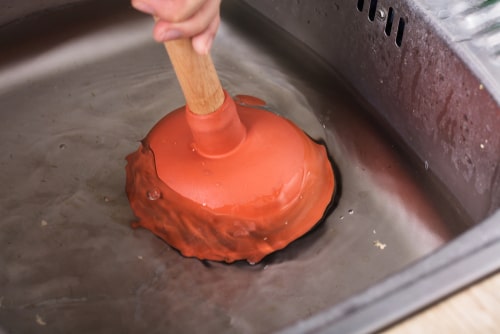Facts on Disposing Coffee Grounds Down the Sink - Find Out What's Involved
Facts on Disposing Coffee Grounds Down the Sink - Find Out What's Involved
Blog Article
We've discovered this article relating to Can Coffee Grounds Go Down the Drain or Sink? listed below on the net and reckoned it made perfect sense to relate it with you over here.

If you're an enthusiastic coffee enthusiast, you could be wondering about the best way to dispose of your coffee grounds. While it might seem hassle-free to wash them down the sink, this method can cause a number of issues for both your plumbing and the setting. In this short article, we'll check out whether it's safe to put coffee premises down the sink and review alternate disposal approaches to take into consideration.
Alternatives to Disposing of Coffee Grounds
Garbage Disposal
If you don't have a composting setup, an additional option is to simply throw your coffee grounds in the trash. Make certain to secure them in a compostable bag or container to prevent smells and leak. While this technique doesn't use the exact same environmental advantages as composting, it's a safe and hassle-free means to dispose of coffee grounds.
Composting
One environmentally friendly choice for getting rid of coffee grounds is to compost them. Coffee premises are rich in nitrogen, making them an outstanding enhancement to compost piles or containers. As they disintegrate, they add nutrients to the soil, improving its fertility and appearance.
Threats of Putting Coffee Grounds Down the Sink
Plumbing Issues
One of the main worry about disposing of coffee grounds down the sink is the danger of obstructing your pipelines. Coffee premises do not liquify in water and can build up in time, creating a dense sludge that can block drains pipes and lead to pricey plumbing repairs.
Environmental Impact
Beyond the potential damages to your plumbing, placing coffee grounds down the sink can additionally hurt the setting. When cleaned right into the sewage system, coffee premises can add to clogs in sewer lines and treatment centers. Additionally, the high concentration of organic matter in coffee grounds can diminish oxygen levels in rivers, negatively affecting water life.
Tips for Proper Disposal
Normal Maintenance
Despite just how you select to take care of your coffee premises, it's important to keep your plumbing on a regular basis. Schedule routine drain cleanings to get rid of any type of buildup and make sure that your pipelines continue to be clear and free-flowing.
Make Use Of a Sink Strainer
To prevent coffee premises from entering your sink's drainpipe in the first place, take into consideration using a sink filter. These economical tools catch solid bits, consisting of coffee grounds, preventing them from causing clogs.
Conclusion
While it may be alluring to wash coffee grounds down the sink for convenience, doing so can have severe consequences for your plumbing and the setting. Rather, consider composting your coffee grounds or throwing away them in the garbage. By embracing accountable disposal techniques, you can enjoy your coffee guilt-free while lessening your environmental footprint.
Coffee Grounds Down The Drain: Are They OK?
Can Coffee Grounds Go Down the Sink?
You may be thinking, “But I pour them down the sink drain every day and I’ve never had a clogged drain!” You see, coffee grounds come from coffee beans, which are virtually rock hard by the time they’re ground and brewed. You certainly wouldn’t want to grind up the pit from a peach, apricot, or nectarine that is about just as hard because they wouldn’t break down like other foods, and it’s the same with coffee beans!
If you usually grind coffee beans in the garbage disposal because it seems the cleanest and convenient, we don’t fault you for that. And anyone who has ever had to clean up the trash with spilled coffee grounds after a dog got into it would understand the rationale. Unfortunately, coffee grounds do not break down in water, so instead of grinding up and washing away as normal foods do in a garbage disposal, they clump together and as time goes by, the grounds can form a clump and pack the drain until it develops a clog.
What to Do With Coffee Grounds
So, what do you do with coffee grounds if you can't put them down the drain? You could of course just throw them in the garbage, but we encourage you to give these practical uses for them a try!
Since coffee grounds contain key minerals for plant growth, you can use them to fertilize your garden. Coffee grounds not only fertilize gardens because they are mineral-rich, but they are also great at absorbing contaminants in the soil, particularly heavy metals. Coffee grounds are said to attract worms, which help gardens flourish. You can use coffee grounds as fertilizer by sprinkling them around your plants. You can compost your coffee grounds and use them at a later time. Coffee grounds are great insect repellents when you place them in bowls or sprinkle them around the areas you want to repel insects. To remove fleas from your dog or cat, simply shampoo your pet then rub coffee grounds throughout their fur. Rinse them off and dry as usual. Like baking soda, used coffee grounds can eliminate odors. You can place them in a bowl in the fridge and let them do the work! Mix coffee grounds with coconut oil for a wonderful face or body scrub, or to reduce the appearance of cellulite. https://www.wintershomeservices.com/blog/2019/august/coffee-grounds-down-the-drain-are-they-ok-/

We had been brought to that write-up about Is it safe to dispose of coffee grounds down the sink? through an acquaintance on a different blog. So long as you enjoyed reading our blog posting if you please remember to pass it around. Thanks for your time. Visit again soon.
Click Here Report this page